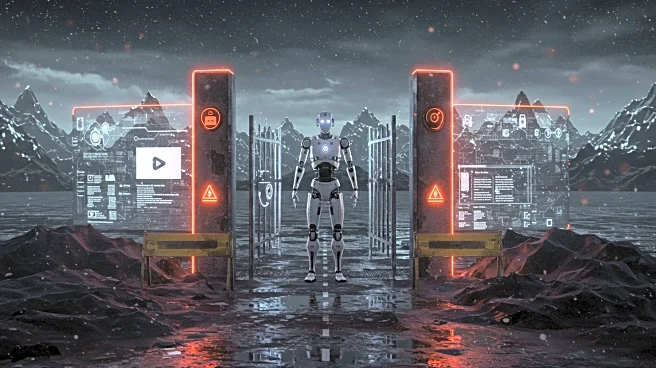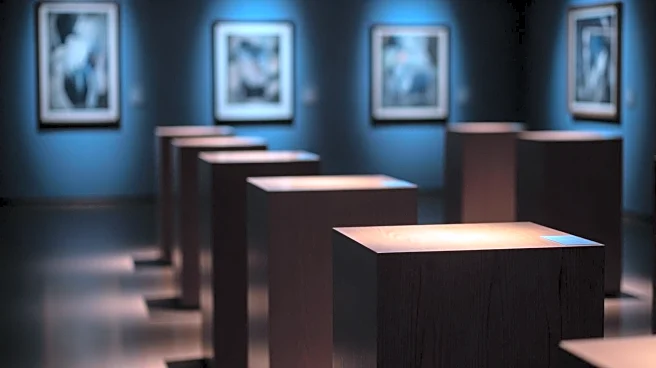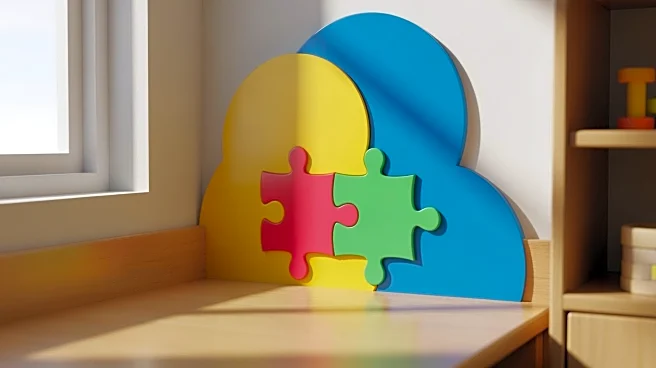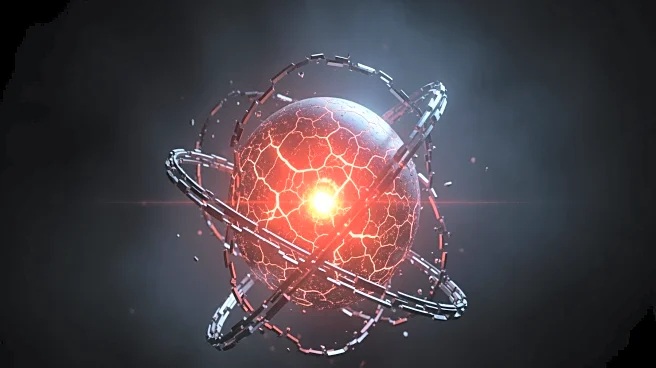What is the story about?
What's Happening?
YouTube is experiencing a surge in AI-generated content, with nearly one in ten of the fastest-growing channels globally dedicated solely to such material. This trend is driven by advancements in AI technology, leading to a proliferation of surreal and often low-quality videos, termed 'AI slop.' Examples include bizarre narratives like babies trapped in space and cat soap operas. In response, YouTube has implemented policies to block advertising revenue for channels that post repetitive and inauthentic content, aiming to curb the spread of AI-generated videos. The platform has already removed several channels and restricted others from monetization.
Why It's Important?
The rise of AI-generated content on platforms like YouTube has significant implications for the digital media landscape. It challenges traditional content creation, potentially undermining the quality of online experiences as platforms prioritize profit over content integrity. This shift could impact artists and creators who rely on these platforms for revenue, as AI-generated content competes for viewer attention and advertising dollars. The phenomenon also raises concerns about the authenticity and reliability of digital media, prompting platforms to reconsider their content moderation and monetization strategies.
What's Next?
YouTube's actions against AI-generated content may set a precedent for other social media platforms facing similar challenges. As AI technology continues to evolve, platforms will likely need to develop more sophisticated detection and regulation mechanisms to manage the influx of AI-generated material. This could involve stricter guidelines for content labeling and enhanced collaboration with AI detection services. The ongoing debate about AI's role in content creation and its impact on digital ecosystems is expected to intensify, influencing future policy decisions and industry standards.
Beyond the Headlines
The proliferation of AI-generated content highlights broader ethical and cultural questions about the role of artificial intelligence in creative industries. It challenges traditional notions of authorship and originality, prompting discussions about the value and impact of machine-generated art. Additionally, the trend underscores the need for digital literacy and critical consumption skills among audiences, as they navigate increasingly complex media environments. Long-term, this development could reshape cultural production and consumption patterns, influencing how society perceives and interacts with digital content.














